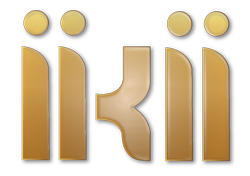Research Article
Impact of Automated Writing Evaluation on Writing Efficacy of English Majoring Students
More Detail
1 Department of Applied English, Chaoyang University of Technology, Taichung 413310, Taiwan* Corresponding Author
International Journal of Social Sciences and Artistic Innovations, 5(2), June 2025, 0008, https://doi.org/10.35745/ijssai2025v05.02.0008
Submitted: 28 October 2024, Published: 30 June 2025
OPEN ACCESS 5716 Views 4269 Downloads
ABSTRACT
We explored the impact of an automated writing evaluation (AWE) system on the improvement of the writing efficacy of English majoring students through a survey with three research questions. The AWE system enhanced the grammar proficiency, writing structure, and overall writing quality of the participants. However, while the participants acknowledged the system’s effectiveness in providing appropriate feedback and facilitating writing improvement, there is room for enhancement in creativity and adherence to academic writing standards. Overall, the results highlighted the promising role of The AWE system in improving English language learners’ writing skills, suggesting the necessity for further integration and refinement to optimize their effectiveness.
CITATION (APA)
Lin, M.-S., & Hung, R.-T. (2025). Impact of Automated Writing Evaluation on Writing Efficacy of English Majoring Students. International Journal of Social Sciences and Artistic Innovations, 5(2), 0008. https://doi.org/10.35745/ijssai2025v05.02.0008
REFERENCES
- Almusharraf, N., & Bailey, D.R. (2023). Students Know Best: Modeling the Influence of Self-Reported Proficiency, TOEIC Scores, Gender, and Study Experience on Foreign Language Anxiety. Sage Open, 13(3), 21582440231179929.
- Chen, Z.Z., Chen, W.C., Jia, J.Y., & Le, H.X. (2022). Exploring AWE-supported writing process: An activity theory perspective. Language Learning & Technology, 26(2), 129–148. https://doi.org/10.10125/73482
- Giessler, R. (2023). EFL writers’ cognitive engagement with AWE feedback. Language Awareness, 32, 1–18.
- Hibert, A.I. (2019). Systematic literature review of automated writing evaluation as a formative learning tool. In Transforming Learning with Meaningful Technologies, Proceedings of the 14th European Conference on Technology Enhanced Learning, EC-TEL 2019, Delft, The Netherlands, September 16–19, 2019.
- Jatin, N., Kassim, H., Khamis, N.Y., & Kassim, A. (2023). Feeding Two Birds with One Scone: Using AWE to Enhance Writing and Creativity among Pre-university Students. In Proceedings of the 2023 7th IEEE Congress on Information Science and Technology (CiSt), Agadir, Morocco, December 16–22, 2023.
- Koltovskaia, S. (2020). Student engagement with automated writing corrective feedback: A mixed-methods study. Assessing Writing, 44, 100450. https://doi.org/10.1016/j.asw.2020.100450
- Lee, Y.-J. (2020). The long-term effect of automated writing evaluation feedback on writing development. English Teaching, 75(1), 67–92.
- Li, R. (2023). Still a fallible tool? Revisiting effects of automated writing evaluation from activity theory perspective. British Journal of Educational Technology, 54(3), 773–789.
- Lin, G.H.C., Larke, P.J., Jarvie, D.S., & Chien, P.S.C. (2018). Debatable Issues of English Writing Apprehensions: A Qualitative Study of Taiwanese English Majors’ Perspectives. English Language Teaching, 11(1), 33–45.
- Ling, G.M., Elliot, N., Burstein, J.C., McCaffrey, D.F., MacArthur, C.A., & Holtzman, S. (2021). Writing motivation: A validation study of self-judgment and performance. Assessing Writing, 48, 100509. https://doi.org/10.1016/j.asw.2020.100509
- Liu, M., & Shao, C. (2024). The Effects of Integrated Feedback based on AWE on English Writting of Chinese EFL Learners. Scalable Computing: Practice and Experience, 25(2), 987–996.
- McNamara, D.S., & Kendeou, P. (2022). The early automated writing evaluation (eAWE) framework. Assessment in Education: Principles, Policy & Practice, 29(2), 150–182.
- Ngo, T.T.-N., Chen, H.H.-J., & Lai, K.K.-W. (2024). The effectiveness of automated writing evaluation in EFL/ESL writing: A three-level meta-analysis. Interactive Learning Environments, 32(2), 727–744.
- Palermo, C., & Wilson, J. (2020). Implementing Automated Writing Evaluation in Different Instructional Contexts: A Mixed-Methods Study. Journal of Writing Research, 12(1), 63–108. https://doi.org/10.17239/jowr-2020.12.01.04
- Parra, G.L., & Calero, S.X. (2019). Automated writing evaluation tools in the improvement of the writing skill. International Journal of Instruction, 12(2), 209–226.
- Pourdana, N., & Asghari, S. (2021). Different dimensions of teacher and peer assessment of EFL learners’ writing: descriptive and narrative genres in focus. Language Testing in Asia, 11(1), 6.
- Shi, Z., Liu, F., Lai, C., & Jin, T. (2022). Enhancing the use of evidence in argumentative writing through collaborative processing of content-based automated writing evaluation feedback. Language Learning & Technology, 26, 106–128.
- Sun, B., & Fan, T. (2022). The effects of an AWE-aided assessment approach on business English writing performance and writing anxiety: A contextual consideration. Studies in Educational Evaluation, 72, 101123.
- Ul Hassan, M., & Akbar, R.A. (2020). Technological literacy: Teachers’ progressive approach used for 21st century students’ academic success in vibrant environment. Problems of Education in the 21st Century, 78(5), 734.
- Waer, H. (2023). The effect of integrating automated writing evaluation on EFL writing apprehension and grammatical knowledge. Innovation in Language Learning and Teaching, 17(1), 47–71.
- Wei, P., Wang, X.S., & Dong, H. (2023). The impact of automated writing evaluation on second language writing skills of Chinese EFL learners: a randomized controlled trial. Frontiers in Psychology, 14, 1249991. https://doi.org/10.3389/fpsyg.2023.1249991
- Wilson, J., Potter, A., Cordero, T.C., & Myers, M.C. (2023). Integrating goal-setting and automated feedback to improve writing outcomes: A pilot study. Innovation in Language Learning and Teaching, 17(3), 518–534. https://doi.org/10.1080/17501229.2022.2077348
- Wu, P., Yu, S., & Luo, Y. (2023). The development of teacher feedback literacy in situ: EFL writing teachers’ endeavor to human-computer-AWE integral feedback innovation. Assessing Writing, 57, 100739.
- Xu, J.F., & Zhang, S.S. (2022). Understanding AWE Feedback and English Writing of Learners with Different Proficiency Levels in an EFL Classroom: A Sociocultural Perspective. Asia-Pacific Education Researcher, 31(4), 357–367. https://doi.org/10.1007/s40299-021-00577-7
- Xue, Y. (2024). Towards automated writing evaluation: A comprehensive review with bibliometric, scientometric, and meta-analytic approaches. Education and Information Technologies, 29, 1–42.
- Zhang, Z. (2020). Engaging with automated writing evaluation (AWE) feedback on L2 writing: Student perceptions and revisions. Assessing Writing, 43, 100439. https://doi.org/10.1016/j.asw.2019.100439
- Zhang, Z., & Hyland, K. (2023). The role of digital literacy in student engagement with automated writing evaluation (AWE) feedback on second language writing. Computer Assisted Language Learning, 2023, 1–26.

 OPEN ACCESS
OPEN ACCESS

 The articles published in this journal are licensed under the CC-BY Creative Commons Attribution International License.
The articles published in this journal are licensed under the CC-BY Creative Commons Attribution International License.